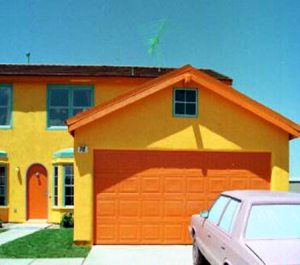There are several living options for people with special needs regardless of whether the person has developmental disabilities, a brain injury, a physical limitation or is aging. Knowing what is available and what’s been done in the past will help in choosing the right option for you and your loved one.
Following is a list of several traditional and creative living situations that provide varying levels of disabled support. Later BLOGs will go into more detail on these different options but here is a basic overview, please post any independent living options you are aware of or would like us to investigate in future BLOGs.
1. Keeping your special needs loved one at home is a common choice.
At home you’ll know your loved one is well taken care of, many parents feel their disabled child (now adult) is their responsibility and don’t entertain the option of living outside the family home especially if the child is severely impaired.
Keeping a disabled loved one at home requires PLANNING to ensure that you can continue giving care without burning out. Also, that if for some reason you are unable to care for your loved one, there are supports in place.
2. Community Housing-Adult Foster Care (AFC) Homes
Adult foster care homes are a common living choice for people with disabilities. AFC homes provide 24 hours 7 days a week care for residents.
There are many different AFC homes. The functional levels of the residents determine how most homes are organized. When looking at AFC homes, try to find one with residents that are similar ages and levels of function to your loved one.
AFC homes often have community activities and socialization opportunities for the residents. The socialization and recreational opportunities that AFC homes provide are a major benefit that many special needs residents truly enjoy. Check and see if the home you are interested in has these options available.
Transitioning into an AFC home can be difficult for both the parent and the young adult. Most AFC homes will allow prospective residents stay for an hour or two or a weekend prior to moving in. Many people with special needs try a few different AFC’s on the weekends before deciding which AFC home is the best fit.
To find out more information on AFC homes contact your county’s branch of Community Mental Health. Not all people with special needs are eligible for this type of service, however, if you are denied; it is your right to seek a second opinion. Don’t give up without a fight! Know your rights, entitlements, and services available to you. The following link lists rights and entitlements for Michigan residents. Click here to see Riverwood's support & services.
Click here to go to the link to AFC options in Michigan.
Creative Options
1. Parent Run Assisted Living.
On the east side of the grand state of Michigan, a few families got together and decided to share the responsibility among them. Together, they rented an apartment for their three sons, all with special needs. They take turns checking in on the boys, making meals, making sure that proper medicine is given, and overall safety.
2. Multiple families purchase a home for 3-4 people with special needs.
People who have done this in the past report that, “This requires having boundaries in place such as ‘In order to live here, you have to have a job’. This is something tangible and concrete that both parties can understand so that no one is being taken advantage of.”
3.Building a house on your property for your special needs loved one. One family portioned off the back of their property for their daughter, and placed a mobile home far enough away that she was living on her own, but close enough that it was easy to check in on her, and there was support for any emergency situations.
4.Rent an apartment and have hired caregivers’ come in (CMH will sometimes provide assistance.) Depending on your child’s functional abilities, and safety awareness, it is a possibility for you to even rent your own apartment and receive support via community mental health (CMH). Again, before doing this it is important to look up and be aware of your entitlements for services available. Be educated!
5.Drive around your neighborhood and you may just realize that a nice mobile home park is just down the road. This may be the perfect solution for your loved one to enjoy the life you have always dreamed for them. It’s close to home where you can stop by anytime for a bite to eat, to ensure your loved one is safe, it is not too big that it will take much maintenance.
The possibilities are truly endless… what do you think about these options? Are they realistic, crazy, brilliant, or stupid? Truth be told, it may be all these things and more for your child. Only you know what may or may not work with your current situation… but you may not know until you try! Life can surprise us sometimes can’t it? What are your thoughts? What is it that you have found to be working with your living situation? What doesn’t work? Any other ideas? Please share we’re all in this together.


No comments:
Post a Comment